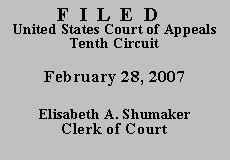

| UNITED STATES OF AMERICA,
Plaintiff-Appellee, v. GREGORY LAMONT LONG, Defendant-Appellant. |
|
The government has moved to enforce Mr. Long's plea waiver under United States v. Hahn, 359 F.3d 1315 (10th Cir. 2004) (en banc) (per curiam). Mr. Long's attorney filed a response stating that Mr. Long would "file his Petition in Error within the prescribed time frame," that the "Petition in Error will allege, among other things, that the sentence of time to serve of 200 months is outside the advisory guideline," and that until Mr. Long "files his Petition in Error and Brief in support [a] ruling granting appellee's Motion for Enforcement may be premature." Resp. to Mot. for Enforcement of the Plea Agreement at 2. For these reasons, counsel requested that this court deny the motion to enforce the plea agreement. This court gave Mr. Long an opportunity to file a pro se response to the motion to enforce. To date, he has not done so.
We have reviewed the petition to enter a guilty plea, the plea agreement, the plea hearing transcript, the sentencing hearing transcript, the government's motion to enforce the plea agreement, and Mr. Long's counsel's response to the motion to enforce. We conclude that the following three factors have been satisfied: (1) "the disputed appeal falls within the scope of the waiver of appellate rights"; (2) Mr. Long "knowingly and voluntarily waived his appellate rights"; and (3) "enforcing the waiver would [not] result in a miscarriage of justice." Hahn, 359 F.3d at 1325. Accordingly, we conclude that Mr. Long's waiver of his right to appeal is enforceable. Further, we note, contrary to his counsel's argument, Mr. Long received a sentence that fell within the advisory guideline range.
We therefore GRANT the government's motion to enforce the plea agreement and DISMISS the appeal. The mandate shall issue forthwith.
ENTERED FOR THE COURT
PER CURIAM
*. This panel has determined unanimously that oral argument would not materially assist the determination of this appeal. See Fed. R. App. P. 34(a)(2); 10th Cir. R. 34.1(G). The case is therefore ordered submitted without oral argument. This order and judgment is not binding precedent, except under the doctrines of law of the case, res judicata, and collateral estoppel. It may be cited, however, for its persuasive value consistent with Fed. R. App. P. 32.1 and 10th Cir. R. 32.1.